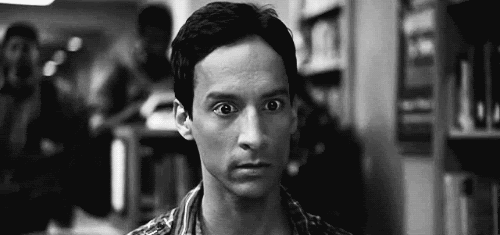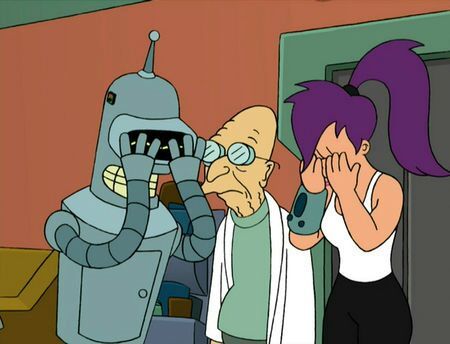
After watching these two films, I immediately feel empathy is a way of “understanding” and”perception,” sympathy is a “relationship.” In empathy, we substitute ourselves for another person. And in compassion, we replace others for us. Empathy is like a brain parasite, parasitic in the host’s body, perceiving everything about him. How does a person feel when he is empathizing with others? Just said: “Hello~! Friend, I am no longer who I am. Are you still my friend?”
Possessor 
Empathy? Parasites?
In this film, Vos has to control the target host through “spiritual parasitism” to complete the company’s requirements and tasks. The copyright belongs to the author. When Vos’s “object consciousness” is “withdrawn” from other people’s bodies and consciousness, Girder will have to evaluate her “mental health” to ensure that her consciousness is not contaminated, carry playing the “pretend mentality” generated by others, it gradually gets out of control. Also, this process is realized through two of Vos’ items—a pipe and a stuffed butterfly. In the framework of “consciousness manipulation,” the possessor takes the “competition” of “two consciousnesses” for a body as a breakthrough point, trying to interpret the relationship between embodied cognition and theory of mind in an existential way. As mentioned in Voicethread Theory of Mind refers to a developmental moment in our cognitive process where we begin to understand that other people do not necessarily have the same thoughts, beliefs, perceptions, feelings, desires, and knowledge that we do. Butterfly specimens are a concrete manifestation of empathy. Vos said, “I killed and mounted it one summer when I was a girl, and then I felt guilty about it.” “Guilty” shows Vos has empathy because it was the first person she killed when she was a little girl; In the final answer, Vos also recounted the origin of the butterfly specimen but did not say that she was very guilty. And this subtle difference reflects the change in Vos’ psychological situation; that is to say, she used the fact that “Tate & Vos” killed Michael and her son, wholly abandoned her concern and identity questioning, let her subconscious mind peel off, get rid of the shackles of self, and bring closer to a more pure self. “I am absolutely starving.” Before going home, Tate and Voss talked, indicating that they controlled each other and eventually became one. Both became parasites to each other.

As Giovanna Cohen Betty theorizes, she argues that we see another person’s body; we feed into their body and live through it. The idea that we feel or feel is our acknowledgment of the place of another person’s body as subjectivity. For example, when she uses Tate’s body is inevitably brought into the host consciousness, she begins to question her identity and, trapped in Tate’s body, begins to rethink who she is. Vos becomes Tate; at this moment, she can understand and perceive that Tate/male is different from what she sees. And Tate’s girlfriend uttered words similar to Michael’s and continued passion. So it made Vos and Tate’s bodies highly integrated, and the previous indifference was no longer there. The excessive immersion allowed Vos to enjoy this body, and at the same time, it was also counterattacked by this body. Through the parasitic method, Vos does not need to read the mind. Although the body belongs to other people, the body she perceives directly gives her the information she needs. Just as in simulation theory, when we interact with another person, we simulate what the other person is feeling in our minds.

“Just think one day your wife is cleaning the cat litter and that worm ends up her brain. Whether you really married to her or married to the worm” (1:28:47). This passage shows that Vos is the parasite and Tate is the wife. Meanwhile, Vos is that wife, and Holly’s killing memories are the parasites fueling her killing genes. What is interesting is that in the scene of the implantation of consciousness, the appearance of the reconstruction of consciousness is expressed in a way that imitates the melting of wax people: that is, the consciousness is the electric wave, the soul is the body, and the body is the soul. Voicethread also mentions embodied cognition, we live through the body, which is other people, and the body is the brain. Our bodies constantly adjust to stabilize our perceptions; we often don’t even know about that.
Futurama

What does it mean if humans lose empathy? Leela complained, “You have no sympathy for anyone else’s feeling” (7:10) after seeing Bender throw Nibbler down and flush it down the toilet. But after he was forced to implant an empathy chip, in the scene at Futurama‘s bar, Bender could sense Leela’s emotions at the bar, including jealousy and loneliness, from the couch at home. And these two things happened simultaneously as if an invisible thread was pulling Bender to feel the same emotions as Leela. This thread is the empathy chip through which Leela’s mood changes are transplanted to Bender. Because of the chip’s empathy, Bender can synchronize with Leela’s emotions. He could realize he was crying because he felt Leela’s grief.

Can emotional empathy be forced? When the professor implanted an emotion chip in Bender’s head, he said, “I’m installing an empathy chip. Yes…If by “allow” you mean “Force” (8:51). The professor’s move of implanting the chip into Bender’s head can be understood as empathy can be placed in our brain, just like the intervention method used by psychotherapists when treating autistic patients, but this also requires the patient’s thinking. To understand, not force. As explained in Empathy in Voicethread, I can understand a friend’s happiness. But it’s empathy. I know that’s not my happiness. While we’re emotionally disconnected to some extent, we can sympathize with what’s going on with others, but we can’t necessarily have natural empathy. On the other hand, how we perceive and empathize things is part of our cognitive process. Cognition exists in the brain, the brain in the body, and the body in the environment. The three interact to perceive things, form concepts, and solve problems.

According to Voicethread, the Theory of Mind is the understanding that other people’s perspectives and ideas differ from one’s own, including thoughts, experiences, feelings, desires, and beliefs. This point is demonstrated when Bender admits that the emotions he feels are not his own and that he can distinguish between the two. Bender said, “Now, I’ll simply turn it to Leela’s emotional frequency. I’m overcome with …Feeling” (9:16). Bender experienced Leela’s emotional change from being happy to angry to sobbing. We can think of this empathy chip as the neurons in Leela’s brain. When Bender was forced to implant the chip, he could directly feel Leela’s love and desire for Nibbler through the chip. It is also the mention of empathy and neurons in Voicethread; we see someone unhappy, and our neurons fire, so we see someone laughing, and our neurons fire in response. What does it feel like to be forced into empathy? If an empathy chip could be implanted, would there be no autism and AHDH?

























